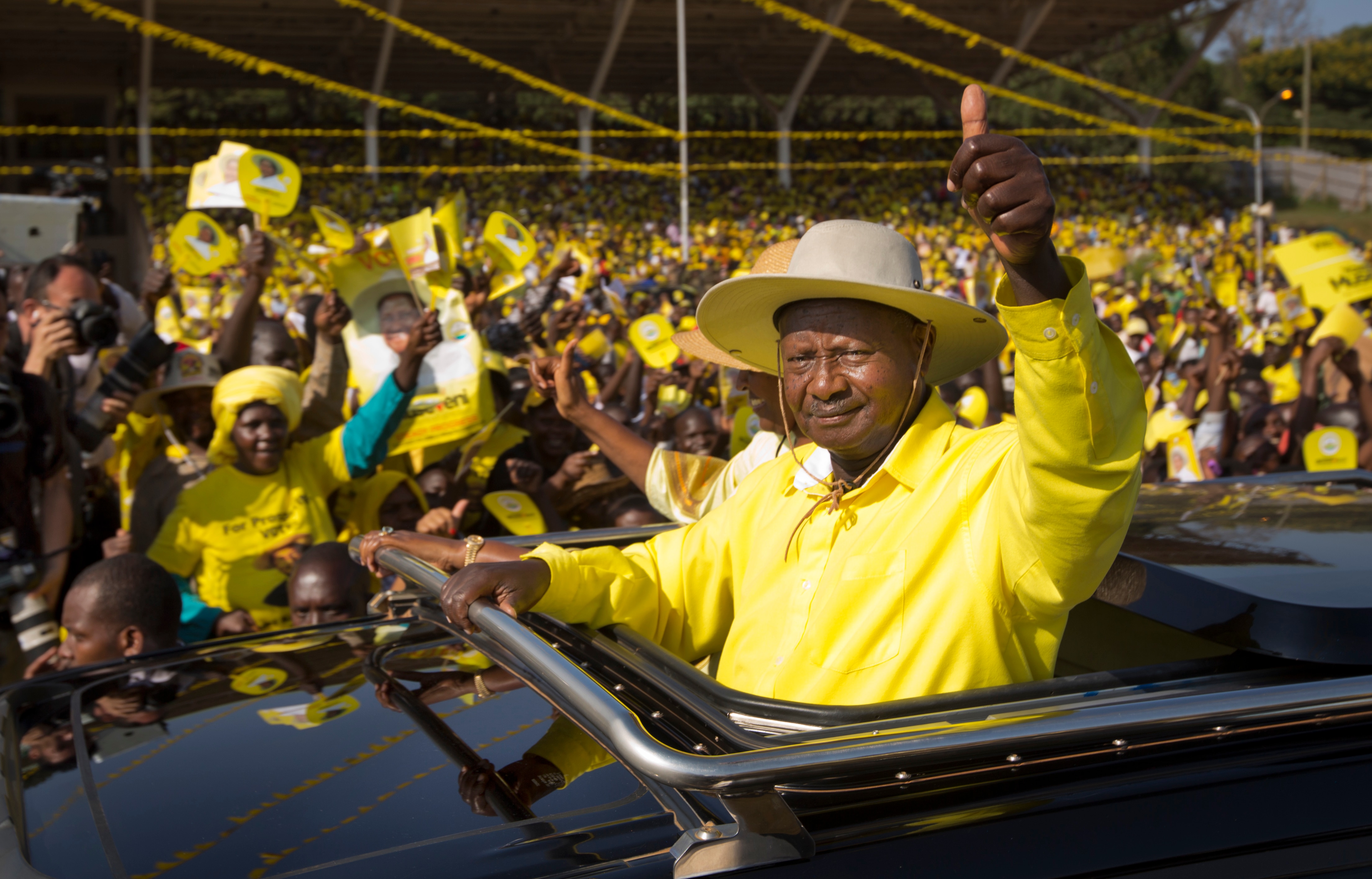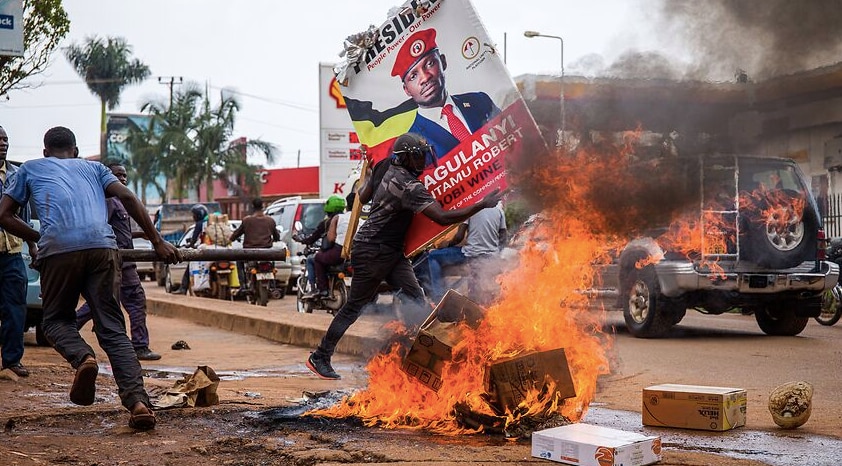Ugandans on Thursday will vote in a highly-charged election after one of the bloodiest campaigns in years, with a veteran president seeking a sixth term against a singer-turned-politician half his age.
Incumbent Yoweri Museveni, a 76-year-old former rebel leader who has ruled since 1986 is looking to hold onto power.
On the other side of the equation is Bobi Wine, a 38-year-old singer who has rattled the ruling party and is the clear frontrunner among 10 candidates challenging for the presidency.
Mr Museveni has cemented his power across his 35-year reign to the point where many expect him to retain the presidency easily.
But amid appetite for change in a country where 80 per cent of the population is under the age of 30, could Mr Wine’s youth and star power help get him over the line?
From singer to politician
Mr Wine – whose real name is Robert Kyagulanyi – grew up in one of the Ugandan capital’s biggest slums, Kamwokya, where thousands struggle to get by and feel forgotten by Mr Museveni’s government.
While he went on to study at university and now lives in a richer neighbourhood, he still sees himself as the “ghetto president”, a nickname earned through his songs denouncing social and economic injustice.
Mr Wine’s modest origins and youth are key to his popularity in a country where 40 per cent of voters are under 30 years old and have known no president but Mr Museveni.
His messages advocating for change and fighting against corruption and unemployment have mobilised many young people previously disinterested in politics.
During this election campaign, Mr Wine has been arrested multiple times. His supporters have also been beaten, arrested and allegedly killed by security forces.
He has accused the current regime of going to extremes to crack down on his campaign in recent weeks and tweeted on Tuesday that soldiers had raided his home and arrested his security guards.
“Such acts of impunity are all kicks of a dying horse,” he said.
35 years in power
The man Mr Wine is trying to unseat has held power since he was a toddler.
Mr Museveni has long been seen as a stabilising force in Uganda after the brutal reigns of two military dictators. But opponents say his government has become riddled with corruption and nepotism.
Shortly after Mr Museveni took power in 1986, ending years of bloodshed and chaos, the young president mused that leaders overstaying their welcome lay at the heart of Africa’s problems.
Some four decades later, the 76-year-old ranks among the world’s longest-serving and, increasingly, authoritarian rulers.
Though he has campaigned under the slogan “securing your future”, the economic boom enjoyed during his early years has faded, and opportunities for young Ugandans are slim – only 75,000 new jobs are created each year for the 700,000 youth reaching working age, according to the World Bank.
In his 35-year reign, Mr Museveni has fused state and party so effectively, any serious challenge to either him or his National Resistance Movement is seen as difficult. Many also see his return to office for a sixth term as a foregone conclusion.
Despite Mr Wine’s popularity and some concern about Mr Museveni’s grip on power, Uganda is still traumatised by the president’s predecessors and rural areas and the military remain firmly behind him.
Pre-election violence
This week’s vote follows a pre-election crackdown more severe than any seen in recent times.
Mr Museveni’s rivals have been arrested, denied permission to rally, and seen their meetings dispersed with tear gas and supporters shot in the streets. Authorities have said the political gatherings contravened curbs put in place to stop the spread of COVID-19.
Journalists covering opposition rallies have been attacked, government critics locked up, and election monitors prosecuted, raising concerns over the transparency of the electoral process.
The bloodshed, particularly the deaths of 54 people over two days of protests in November, was condemned abroad and has intensified international pressure on Mr Museveni to ensure a free and fair vote.
Uganda earlier this week ordered a shutdown of social media platforms including Facebook, Twitter and WhatsApp, while the UN urged respect for human rights in the run-up to the vote.
UN Secretary-General Antonio Guterres’ spokesperson said he “encourages all political actors and their supporters to publicly commit to conduct their political activities peacefully and refrain from incitement to violence or hate speech”.
Wendy Lambourne, deputy director of the University of Sydney’s Centre for Peace and Conflict Studies, said while there is an air of change in Uganda, it may not become tangible during this election.
“What we’ve got at the moment is a shift in the dynamic, so even if Museveni retains power, there’s a shift about how people in Uganda feel about the potential for change in the future,” she told SBS News.
Uganda has never seen a peaceful transfer of power since its independence from Britain in 1962, and polls are often marred by violence and allegations of rigging.
Even if Mr Wine performs strongly in the election, Ms Lambourne said the way Mr Museveni and authorities have handled dissent over the past 12 months suggests there could be violence.
“The silencing of others, the arrests, the intimidation of opposition opponents in various different ways suggest he, at least up until this point, has had a very strong intention to stay in power and to continue what he sees as his mission for Uganda.”
With AFP.










